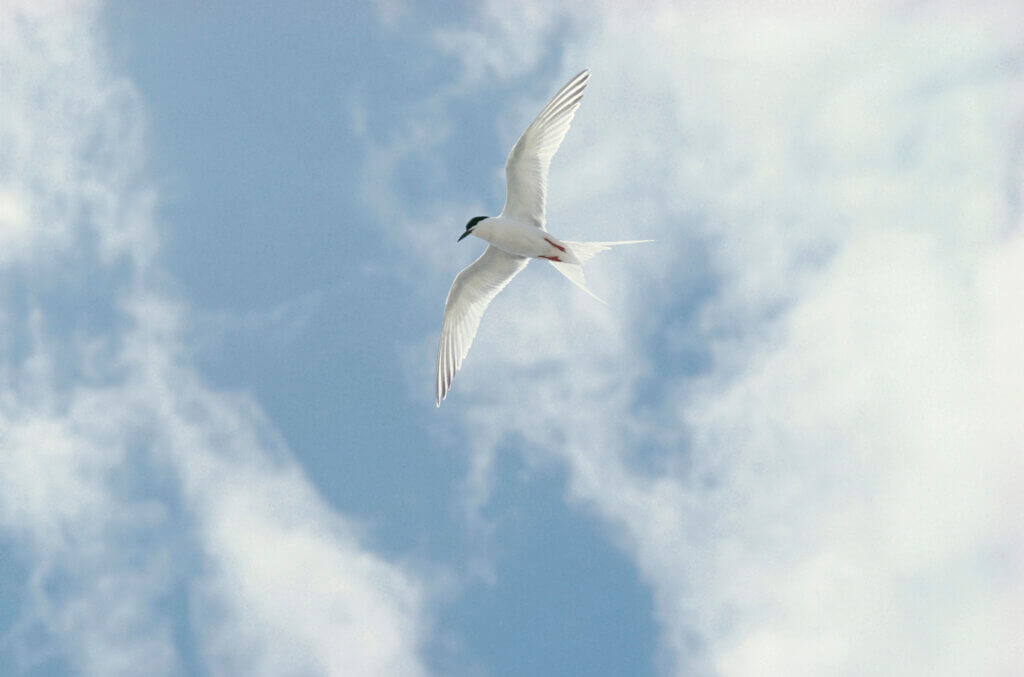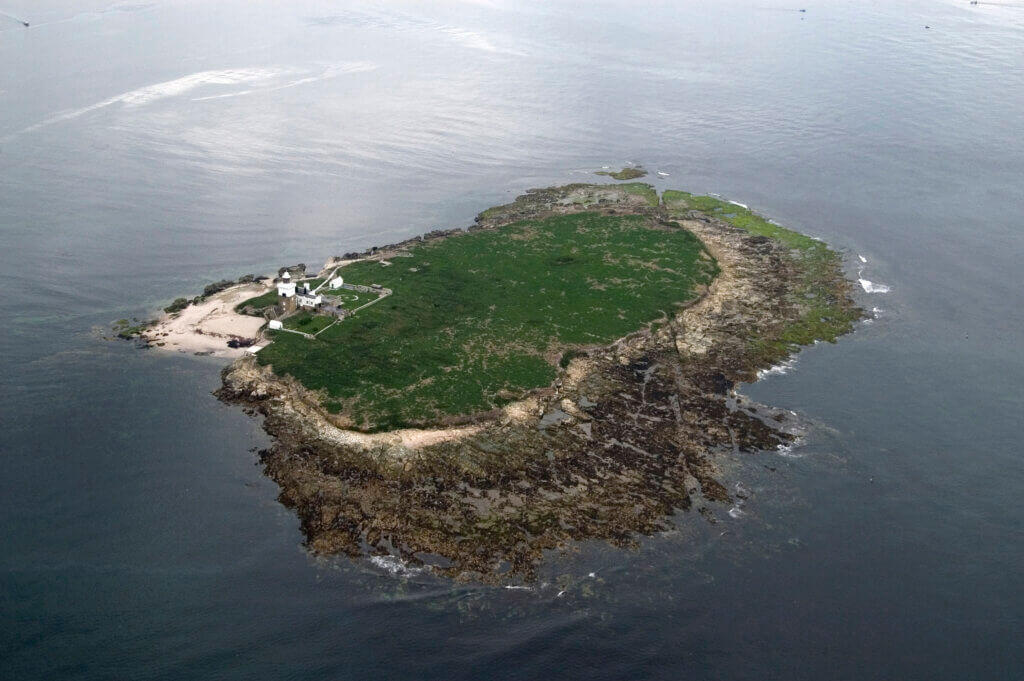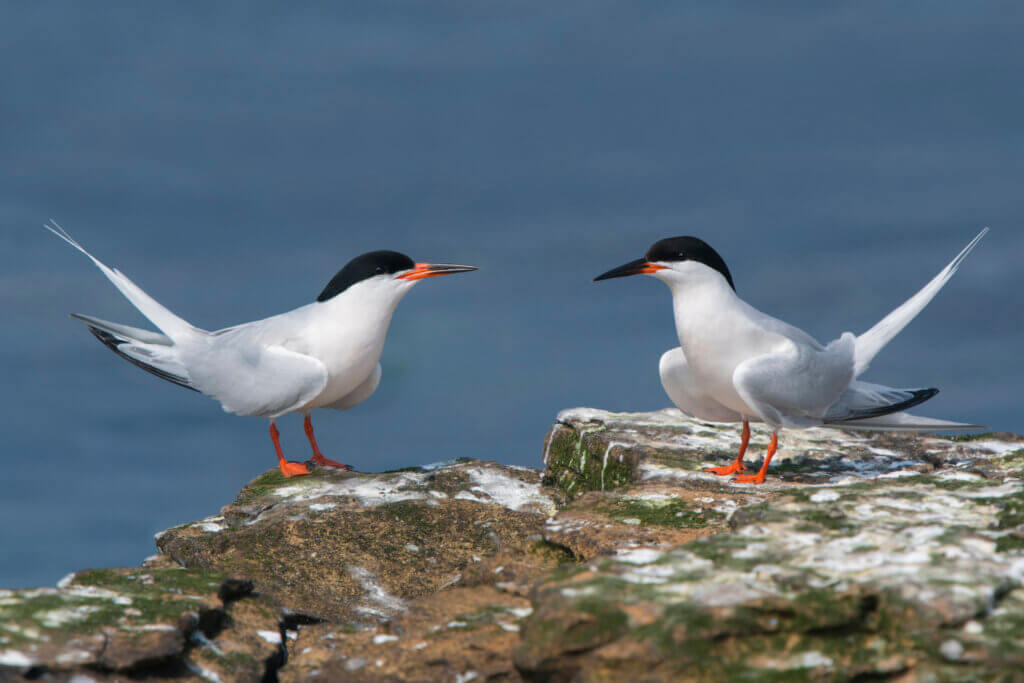Chance of a rosy future with record year for roseate terns

- 2019 saw a record-breaking 122 pairs of roseate terns, Europe’s rarest breeding seabird, on Coquet Island.
- Three webcams now installed on Coquet Island provide a window into the life of roseate terns and puffins.
In 2019 there was a record-breaking 122 breeding pairs of roseate terns, Europe’s rarest breeding seabird, on Coquet Island. The previous record was 118 pairs in 2018.
Roseate terns almost went in extinct back in the 19th century because of the demand for their feathers in ladies’ hats. In 1989 there were still only 467 pairs across the whole of the UK, and Coquet Island has become one of the key sites for helping populations to recover.

Since taking over management of the Island in 1970, the RSPB has used a wide range of methods to bolster roseate tern numbers: installing nest boxes, trialling new techniques such as gull-scarers and ‘aerolasers’ to deter other birds, and building up lost habitat, to name a few.
Paul Morrison, RSPB Northumberland Coast Site Manager, said: “When I first started working on Coquet Island 35 years ago, I could walk over most of the Island without seeing a roseate tern. Now it’s a joy to hear their noisy chatter every time I step out of the lighthouse!
There’s always a lot more work to do, and roseate terns still face a long uphill battle – but every year I feel more and more optimistic that with the help of our incredible volunteers and members, roseate terns will one day become a common sight around the UK coastline. In the meantime, please do check out the live webcams to see roseate terns strut their stuff on their ‘terrace’ or settle into a nest box – or look out for our puffin ‘runway’!”
Please visit www.rspb.org.uk/coquetisland to see the web cameras. The web cameras, and much of the roseate tern conservation work, has been made possible through the EU funded Roseate Tern LIFE Recovery Project. The LIFE Project (www.roseatetern.org) is a partnership between the RSPB, BirdWatch Ireland and North Wales Wildlife Trust focused on protecting the remaining three colonies in the British Isles and restoring five historical sites for future recolonization.

The RSPB is also asking for people to submit their own archived images of puffins as part of their citizen science project, Puffarazzi – please visit http://www.rspb.org.uk/projectpuffinUK to see how your photos could help protect these iconic clowns of the sea.
ENDS
[registration_form]
Good story, lovely birds and a nice part of the world.
Please don’t tell Natural England though as they will want to move them all to Brownsea Island.
and they still have to protect them from egg thieves I gather
That is really good news. Very many congratulations to the RSPB. They are a great organisation. Occasionally they drop a clanger but rarely and there skills and science are second to none. They do terrific work all around the country for wildlife and it is not all associated with birds. The U.K. wildlife would be in desperate straits without them especially if it was all in the hands of Natural England and this Government..